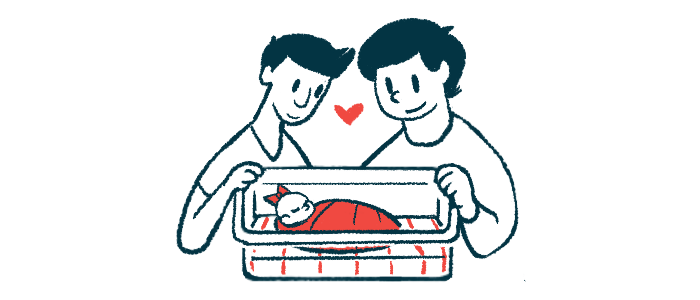App Will Track Newborns Diagnosed with SCD in 6 African Countries

Novartis is partnering with the American Society of Hematology (ASH) to roll out an app in six sub-Saharan African countries to track babies who receive a diagnosis of sickle cell disease (SCD) through newborn screening.
The app is already in use in Ghana, where it works to collect and store screening results even when there is limited internet connection. This means that babies can receive a clinical referral sooner and have timely access to care.
The countries now set to receive the digital tool are Kenya, Liberia, Nigeria, Uganda, Tanzania, and Zambia. They are all part of ASH’s Consortium on Newborn Screening in Africa (CONSA).
“ASH is excited to partner with Novartis to expand its current newborn screening consortium to new areas, with the implementation of digital tools to collect vital information,” Jane N. Winter, MD, ASH president, said in a press release.
“As we learn together about the implementation of early diagnosis and treatment, we will be able to show national and international partners the value of this work in saving lives,” said Winter, who also is a professor of hematology and oncology at Northwestern University’s Feinberg School of Medicine.
Babies with SCD are born with a mutation in the HBB gene leading to the production of faulty hemoglobin, a protein inside red blood cells that carries oxygen around the body. Red blood cells then become stiff and sticky and acquire an unusual sickle-like shape, causing the symptoms of the disease.
Its diagnosis can be made soon after birth through a blood test to check for the presence of the flawed hemoglobin protein.
“300,000 children are born with sickle cell disease each year, and around 75% of those are born in Sub Saharan Africa,” said Bernard Awuonda, a consultant pediatrician who leads the CONSA project in Kenya.
CONSA screens 10,000–16,000 babies a year in each country and provides clinical follow-up for those who test positive for SCD.
“Despite this, no country in our region has adopted a universal newborn screening program, making agreements like this all the more crucial in bringing hope to babies and their parents,” Awuonda said.
The partnership with ASH also will make SCD treatment more widely available by bringing hydroxyurea into CONSA’s network of health care facilities. Hydroxyurea is an oral medicine used to reduce the frequency of pain crises and the need for blood transfusions in SCD patients.
“This partnership is a testament to our long-standing commitment to provide a comprehensive approach to disease management that encompasses early intervention strategies, such as screening and diagnosis; follow-up treatment such as HU; research to investigate new treatments; and education and advocacy to improve access to existing therapies,” said Racey Muchilwa, the head of Sub-Saharan Africa for Novartis.
“The Novartis Africa Sickle Cell Disease program is implemented through public-private partnerships with local governments, as well as collaborations with universities, patient groups, professional societies and other organizations,” Muchilwa added.







